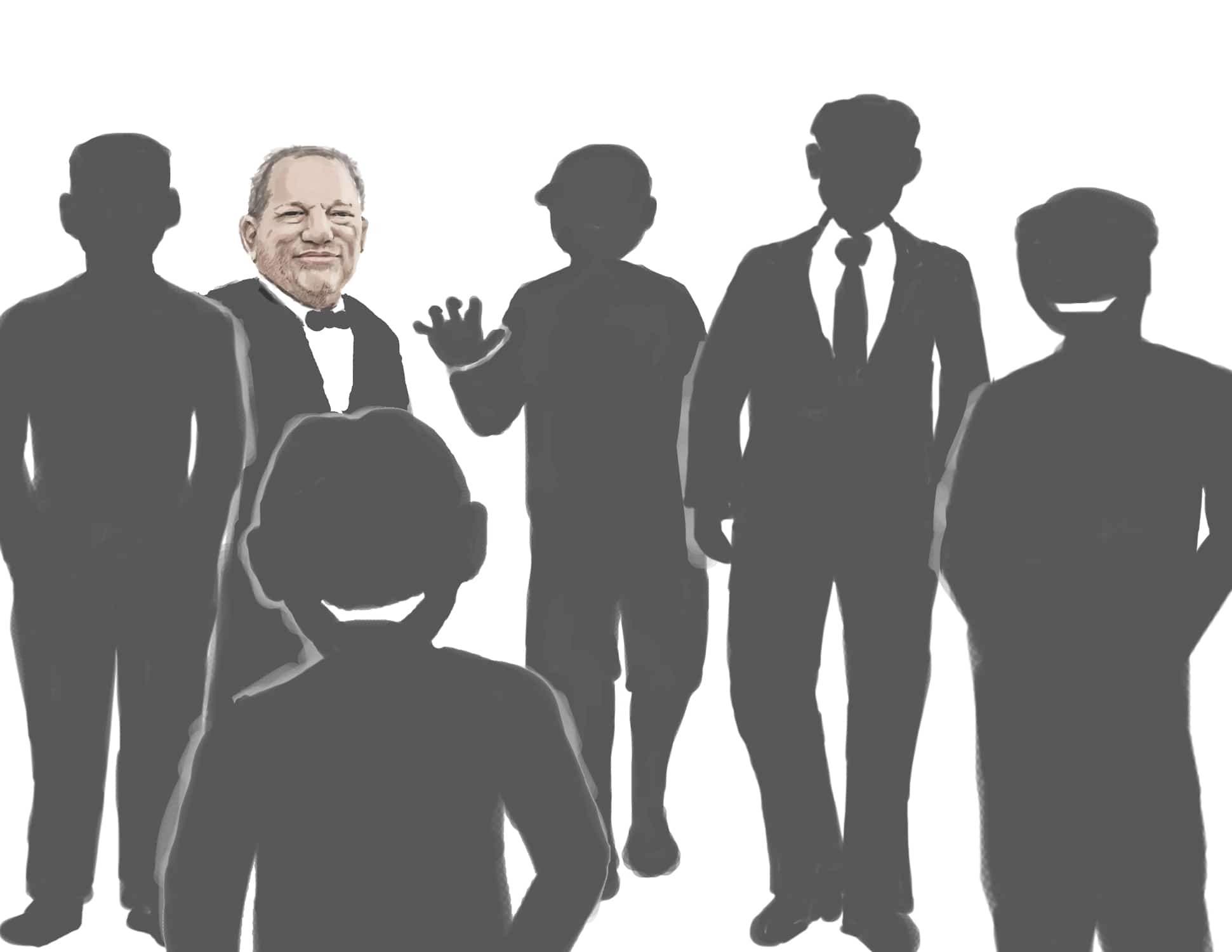When I first heard the news of the Harvey Weinstein scandal, I felt several emotions, among them anger, disgust, frustration and empathy for the victims.
One I did not experience was surprise.
Overt incidents like these in which men in positions of authority abuse their power and harass women are ubiquitous, and covert incidents even more virulent. As women, we are conditioned not to speak up or protest such egregious behavior for fear of being labeled dramatic, overly sensitive or bitter toward men. The risks associated with speaking out often feel like they outweigh the benefits. When women do not immediately come forward about their abuse, they are condemned for waiting too long, and those who do are often not believed or dismissed. It is a maddening double bind.

According to the U.S. Department of Justice Office on Violence Against Women, “reasons for not immediately reporting the assault or not reporting it at all include fear of retaliation by the offender, fear of not being believed, fear of being blamed for the assault, fear of being ‘revictimized’ if the case goes through the criminal justice system, belief that the offender will not be held accountable, wanting to forget the assault ever happened, not recognizing that what happened was sexual assault, shame and/or shock.” Speaking out about abuse puts those affected in an extremely vulnerable position, something that is important to consider before jumping to criticize those who choose not to.
I find the expressions of shock over the recent news particularly vexing because I have experienced countless inappropriate exchanges with men older than me and those in positions of power. A teacher once threw a pencil on the ground and asked me to pick it up, forcing me to bend down in front of him. I remember when I was 13 and felt paralyzed with fear as a strange, intimidating man interrupted my dinner with a friend at the farmer’s market to ask if he could take photos of us. We meekly responded no with our heads down which catapulted him into a defensive rant, shouting that he was not a pedophile. Another time a restaurant employee offered to rub lotion on my friend’s and my arm.
From perpetrators like Bill Cosby and Roman Polanski to more recent allegations against James Toback, Brett Ratner and Kevin Spacey, it is clear that the entertainment industry is rife with misogyny and sexual impropriety. To focus narrowly on the depravity of Weinstein is to ignore a larger and pancultural epidemic. While Hollywood is notorious for sexual abuse, men in all fields have for too long escaped the consequences of their crimes. In fact, many men are rewarded despite their exploitation of women, such as President Donald Trump who bragged about his being allowed to “grab women by the pussy” due to his celebrity status. Women all over the world are forced to navigate the murky, dangerous waters of sexual harassment every day. According to the Rape, Abuse and Incest National Network (RAINN), one out of every six women has been the victim of an attempted or completed rape in her lifetime. Those who refuse to acknowledge the problem only push it deeper into an abyss of shame and secrecy, hindering honest dialogue.
In the past, women who signed nondisclosure agreements after receiving settlements from men such as Weinstein were prohibited from speaking publicly about their experiences; their silences maintained an illusion that sexual assault was not as prevalent as it is. It is self-serving to claim unawareness of sexual misconduct to avoid culpability and offers no help to past or future victims. People often believe that they are not contributing to the problem of sexual harassment simply because they are not responsible for it on an individual level. Though they may not have committed acts of sexual assault, they may still use sexist language, hold misogynistic beliefs and remain complicit in a variety of ways that make it more culturally acceptable. The only way that this behavior can begin to be mitigated is if more people actively condemn it and make an effort to confront sexist attitudes. Doing so requires a disruption of the status quo as sexism is ingrained in so many aspects of life.

Sexual harassment is part of the female experience. My experiences are relatively mild in comparison to the horrific abuse many women have suffered. I feel hopeful that the attention the Weinstein scandal has received has opened the door to more conversations about sexual misconduct and increased public awareness of the pervasive nature of sexual harassment. Breaking the stigma of sexual assault is necessary to reduce the perpetuation of myths around it.
As abhorrent as Weinstein’s actions are, he is only one of many men who have committed sexual crimes. Instead of choosing to marvel at recent events in the news, it is necessary that we acknowledge that our society is one built to allow men to abuse their power. Attitudes that permit sexual assault are deeply embedded into the fabric of our patriarchal culture and it will require perseverance on everyone’s part to begin the creation of a new culture in which this kind of abuse is no longer tolerated.
Anna Lipton is a junior sociology major. She can be reached at alipton@oxy.edu.
![]()































